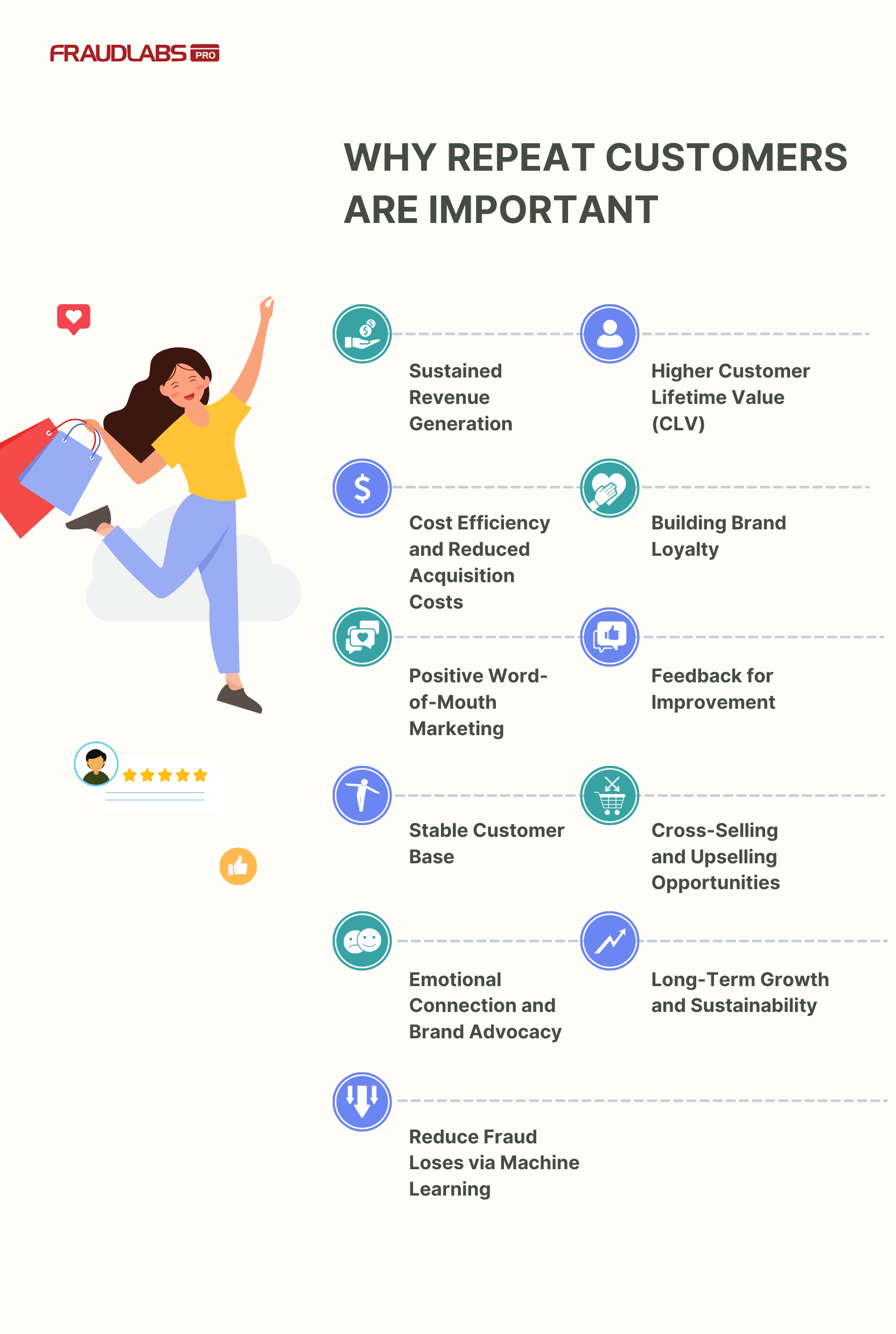
In today’s competitive business landscape, customer retention has emerged as a strategic approach of sustained success. Customer retention encompasses both repeat purchases and repeat customers, but it goes beyond just these two concepts.
Repeat purchases and customers are closely related concepts that are integral to understanding customer behavior and business success. They are interdependent and often go hand in hand.
Today, we will discuss the importance of repeat customers and why they are crucial for businesses.
What is a repeat purchase
Repeat purchases, also known as repeat buying or repurchasing, refer to the act of a customer buying a product or service from a particular brand or company multiple times over a period of time. This behavior is a key indicator of customer loyalty and satisfaction. When customers repeatedly choose to buy from the same brand, it demonstrates that they have had positive experiences with the product or service, and they trust the brand to consistently deliver value.
What is a repeat customer
Repeat customers are individuals who have made multiple purchases from a particular brand or company. This phenomenon reflects not only customer satisfaction but also the brand’s ability to deliver consistent value, build loyalty, and foster trust.
The significance of repeat customers extends beyond mere transactions; it encapsulates the essence of a brand-customer relationship that is essential for business growth. They are often the backbone of a business’s success, as they provide a stable and consistent source of revenue.
Why repeat customers are important
Yes, we all agree that repeat customers are extremely important for businesses. They play a pivotal role in the success and sustainability of a company. Here’s why:

Sustained Revenue Generation
They contribute significantly to a company’s revenue over time. Their consistent purchases create a reliable and predictable income stream, which is essential for business sustainability. This stability helps buffer against market fluctuations and economic uncertainties.
Higher Customer Lifetime Value (CLV)
A returned customer tends to spend more money over their entire relationship with a brand compared to one-time buyers. They have already demonstrated their interest in the brand and have built trust, which leads to increased spending and a higher CLV.
Cost Efficiency and Reduced Acquisition Costs
Acquiring new customers can be expensive due to marketing and advertising costs. Repeat customers already know the brand and require less effort and expense to convert. This makes retaining existing customers more cost-effective.
Building Brand Loyalty
Repeat customers have developed trust and confidence in the brand’s products or services. Their loyalty creates a competitive advantage by reducing the likelihood of switching to competitors.
Positive Word-of-Mouth Marketing
Satisfied loyal customers are more likely to share their positive experiences with friends and family. Their endorsements lead to organic word-of-mouth marketing, attracting new customers without additional efforts.
Feedback for Improvement
Repeat customers provide valuable feedback based on their ongoing interactions. This feedback can be used to enhance products, services, and overall customer experiences.
Stable Customer Base
A loyal base of returned customers provides stability to a business, helping to withstand market fluctuations and economic downturns.
Cross-Selling and Upselling Opportunities
Repeat customers are more inclined to explore other products or services offered by the brand. This creates opportunities for cross-selling and upselling, increasing the average transaction value.
Emotional Connection and Brand Advocacy
Over time, repeat customers can develop an emotional connection with the brand. This emotional bond leads to brand advocacy, further solidifies their loyalty and makes them resistant to switching to competing brands.
Long-Term Growth and Sustainability
Building lasting relationships with loyal customers is essential for long-term business success. They provide a steady foundation for growth and expansion, contributing to a thriving enterprise.
Reduce Fraud Loses via Machine Learning
The presence of repeat customers can contribute to reducing fraud losses for businesses as they have established transaction histories with the brand. This history provides a baseline of their typical purchase behavior, making it easier to identify any unusual or fraudulent transactions.
Conclusion
In general, repeat customers are more likely to spend more and try new products. However, while the importance of repeat customers is widely recognized, businesses often grapple with understanding the dynamics that underlie their behavior.
There is a strong correlation between customer retention and increased profitability for businesses. When companies focus on retaining their existing customers and encouraging repeat purchases, it often leads to a notable boost in profits. Businesses should therefore work towards building a customer base with trust and loyalty towards their brand, to see their profits increase over time.